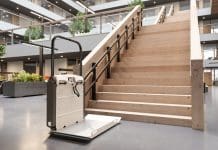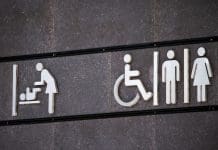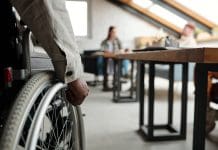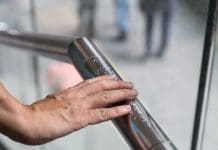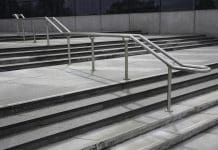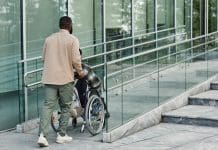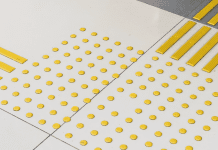Ian Streets from About Access discusses tackling disability issues and how the simplest ideas can be the most helpful in varying situations.
About Access have dealt with accessibility issues within a range of areas and has come up against a number of different issues to overcome in it’s history.
No one would decry the investment in sophisticated and substantial infrastructure to improve the accessibility of a building and its surroundings, but it’s important to recognise that you can also make a difference at a fraction of the cost.
Sound suggestion
All it takes is a little innovation and insight of the kind demonstrated by a member of the access group which operates at The O2.
As someone who uses hearing aids, they recalled the frustration they’ve experienced on the occasions when they’ve attended an event, their hearing aid batteries have failed and they’ve forgotten to take spares.
The simple suggestion was that it would benefit all concerned if somewhere in the building there was a point where someone in such a situation could pick up replacement batteries. And it was a small step from there to considering how to expand the service – look at the things that can go wrong with some of the equipment which can be essential in ensuring a disabled person can attend and enjoy a shopping or leisure facility. Then try to provide solutions.
The service could be offered as a benefit for the users of a building, with the ultimate aim to make it as easy as possible for disabled people to make full use of the facilities, because that’s good for the customer and good for the business.
Bespoke for venues
The detail of how it works depends on the nature of the venue and its facilities. Different buildings have different uses, and they accommodate people for varying periods of time, maybe a few minutes, maybe several hours.
Replacement hearing aid batteries are likely to be harder to find at an entertainment venue than a shopping centre, where the operators would probably not want to conflict with the interests of retail tenants. Perhaps they wouldn’t sell hearing aid batteries if a nearby shop sells them, but they could still give directions.
They could also stock other items in the “spares first aid kit” for sale, loan, hire or just to be given away. We’re thinking about disposable gloves for the WCs, hygiene wipes, weighted blankets for people with autism, ear defenders, maybe a monocular to help vision. There might be demand for ferrules for the bottom of walking sticks, easy-grip beakers, straws and more.
At The O2, the most expensive item on the list was an electric tyre inflator, which cost £65 and can be made available for use free of charge. There are also assorted tools such adjustable spanners and Allen keys – all items that are very easy to get hold of and that didn’t break the bank.
Expanding the idea
It’s easy to see how such a service can be of benefit in locations where visitors tend to stay for a while – entertainment venues, cinemas, shopping centres, hotels, and airports. Railway stations and attended car parks could also help.
Most supermarkets and shopping centres have customer service desks. Maybe libraries, business improvement districts, market operators or informal trader organisations could play a part.
It is important that staff are fully aware of the availability and the location of the service, which should also be promoted online to give disabled people confidence about visiting your premises and to encourages others to follow the example.
It comes down to thinking properly about the needs of all of your customers. Take water bowls as an example. They’re everywhere, because many business owners are quick to think about the needs of assistance dogs. They just need to think a bit more about the dogs’ owners and other disabled people!
More from About Access can be read on their stakeholder page.



